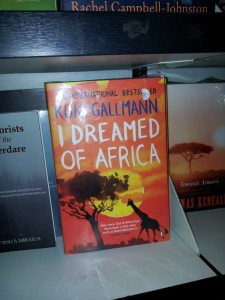In an earlier post, I talked about a Kenyan bank that began operations in South Sudan in 2006. At the time, the country was just emerging from the war, and no bank operated in the country. The perspective of making profits in South Sudan was in the distant horizon for the Kenyan bank. But the management team believed that ‘bankarization’ would contribute to the transformation of South Sudan. They expect to see profits in the next 10-20 years. Although other institutions are setting up in the country, the Kenyan bank has more than a 50% market share. Why? Because it was there through the difficult times, it is the bank of choice for the South Sudanese. This is what patient capital is all about.

Patient capital refers to capital invested for the medium-to-long term – 5 to 10 years. Investors are willing to defer returns for an extended period of time under the expectation of greater returns in the long run. Patient capital is also concerned with the social aspects of development, not only with the economic ones.
Startups and social enterprises can benefit enormously from patient capital: by not demanding dividends or interest payments on loans, patient investors give those businesses the time they need to become self-sufficient through their own revenue. Investors benefit as well. The long-term rate of return is often higher than what the immediate returns would be. Plus certain countries offer some financial benefits to this type of investment.
Governments in Sub-Saharan Africa need to understand that their countries’ development needs patient capital. And governments need to be patient as well. Countries rich in oil and other natural resources find an easy source of immediate gain in those industries. Taxes from extraction activities feed government coffers without much effort for them. They don’t need to collect taxes from other economic activities, and they have no incentives to create the conditions for other types of businesses to flourish. This is the case in Nigeria, for instance (you may have read about Nigeria’s impoverishment and the oil industry in a previous post).
Africa is fashionable. The problem with fashions is that they come and go. If investors are attracted to Africa for the buzz but seek out only quick returns, chances are they won’t stick around long. This new form of colonialism may easily become a risk for Africa’s development. What Africa needs is patient capital that’s there to stay. Governments need to understand this and they have a role to play here, don’t you think?


very few entrepreneurs show the same long term vision that this bank exhibited. i feel that post war countries are a rich vein of opportunity with higher roi in the long term. but its all a risk that one has to tread thinly
Indeed, a big risk… but a big return as well for those who dare taking that risk